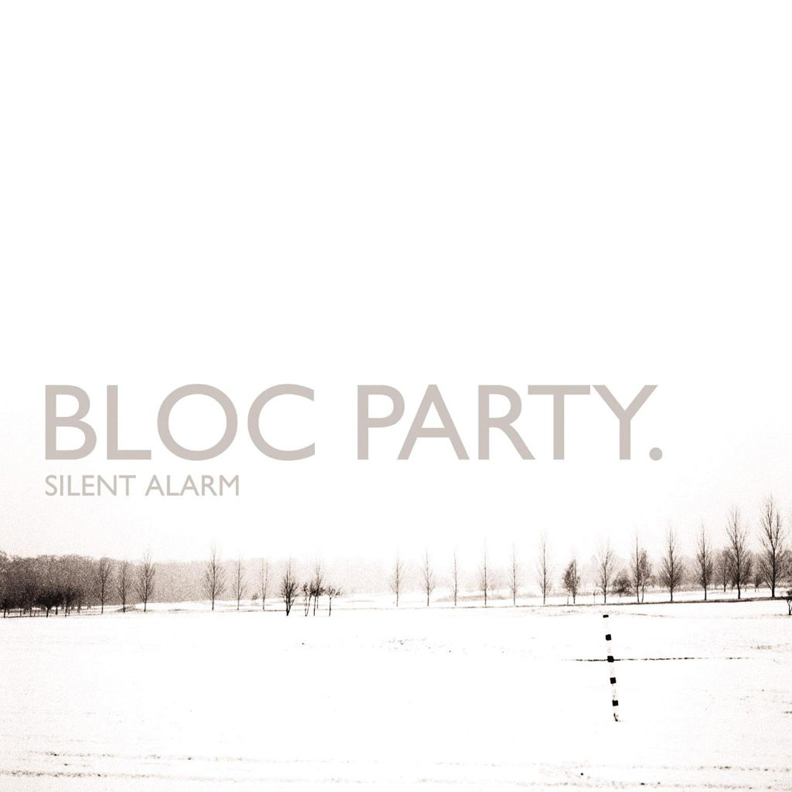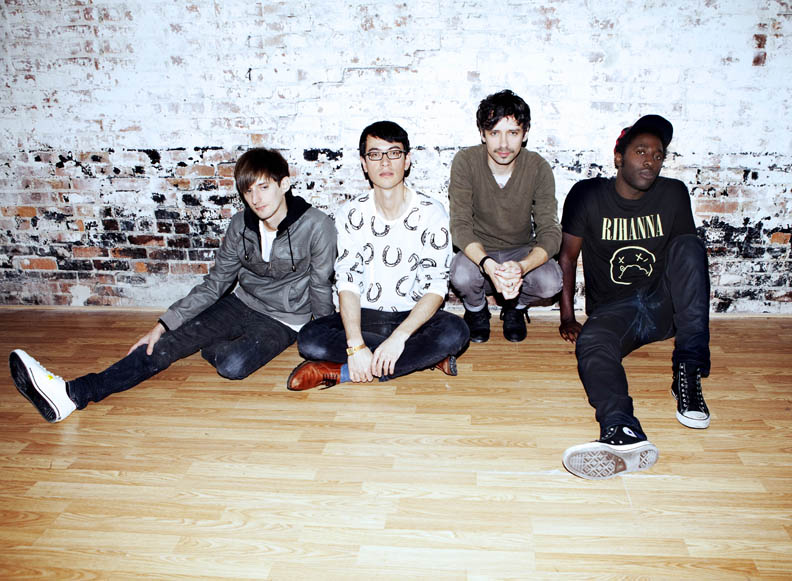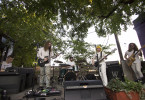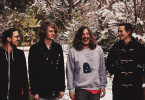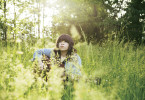I couldn’t tell you what album, artist, song, or even writer convinced me to be a music journalist, but I can tell you the album that made me look at music as an experience instead of just something to listen to. For me, that album was Bloc Party’s Silent Alarm, a record that turns 10 this year. Looking back, nothing propelled a bigger seismic shift in my listening habits than that record, and I remember when I first heard it, it felt like something I had been searching a long time for. It was the first band and first album that felt like it was mine.
It came out when I was 16 years old, which doesn’t feel like a coincidence. That’s the year when you are kind of done with the “conforming to the norm” stage of those teenage years and seek out who you want to be as an adult, who you want to be after graduation. There’s a line in “Banquet” that I’ve read in several different ways. Some sites list it as “turning into my soul.” Others say “turning into myself.” I like to believe it’s the latter.
Up to that point, I listened to mostly what my peers did: pop-rock, nü-metal, a little rap and mainstream alternative. My creative friends loved Taking Back Sunday and Brand New, but my taste for that world didn’t go all that deep. Growing up in the small, rural town of Lindsay, Oklahoma (population: 3,000), I had precious few resources to introduce me to new music. The internet had been around and prevalent for more than a spell, but as someone who was deathly afraid of the consequences of utilizing Napster, I’d hardly learned to take advantage of that (Bloc Party was one of the very first “buzz bands” to break out with the advent of music blogs, something I remained wholly unaware of for a few years to follow). So my media consumption was limited mainly to basic cable mainstays MTV (but not MTV2 or MTVU) and VH1, music magazines like Spin and Blender that I would pick up at Borders when I had the chance (what a 2005 thing to say), and little else.
Luckily, college radio and indie bands were starting to seep into the more widely accessible channels, though the ones I had encountered up until then were never quite the right fit. Yeah Yeah Yeahs were too damn cool, The Strokes were a little too sleek, Death Cab for Cutie was a little too mopey, Gorillaz were a little too abstract, while Modest Mouse and Franz Ferdinand were just an inch off. “Float On” and “Take Me Out” hooked me, but the rest of those respective albums didn’t reel me in the way Silent Alarm did.
I saw the video for “Banquet” on MTV, and I was immediately enthralled by it. Matt Tong’s drums were so precise. Kele Okereke fronted the band like a badass one second and total sweetheart the next. Russell Lissack’s guitar was unlike anything I had heard to that point, and Gordon Moakes crafted thick, juicy basslines to anchor it all. I had picked up the Silent Alarm record at Target (I know), and I had never been so excited to put an album on the stereo, having to wait out that 45-minute drive from Norman back down to Lindsay to do so. If I’m being honest, I’m not sure that I had ever actually sat down and listened to a record the whole way through, front to back, without it taking a back seat to (or sharing the wheel with) video games, driving, or any other mundane activity. Not only did I listen all the way through, I immediately started it again, sitting there and being mesmerized by every second.
It was the moment that tapped into who I might be instead of who I was in that moment. It got me, and I got it, and I don’t know that I had truly ever loved a record before that one. I adore sweet romanticism (“This Modern Love,” “Blue Light”) as much as high-wire indie-rock hooks (“Helicopter,” “Like Eating Glass”), and Silent Alarm is aplomb with both of them. I crave spindly guitar riffs, tight and pulsing percussion, and I can’t help but think British accents make for the best vocals.
It was “Banquet” that drew me in deepest. It was my first brush with anything resembling post-punk (granted, this is the neon-lit, NYC brand of clever-but-easily-palatable post-punk), and I probably haven’t listened to any one song more than that one. While I still love “Banquet,” it was “Positive Tension” that left the biggest impression in my current music dietary preferences. The song couldn’t have been titled better; it’s a weird blend of winks and smiles and manic aggression painted in pink instead of red. I appreciated the balance between unhinged and contained — a beautiful dynamic I still actively seek out.
And I think that’s what I continue to appreciate about Silent Alarm most. I was dedicated to it, yes, and I remain a fierce advocate for it to this day, but it pushed me outward and away as much as it lured me in. The record sent me hurling back in time to discover (and appreciate) Gang of Four, The Smiths, Television, Sonic Youth, and Joy Division — bands I soon realized were, to me, what The Beatles and Rolling Stones represented to so many others. It paved the way for me to love many of the artists I do today (James Blake, No Age, Toro Y Moi, and The Drums).
Bloc Party hasn’t made another album like Silent Alarm since, but I’m not sure the band could have if it wanted … or if it even needed to, either. I appreciate A Weekend in the City, Intimacy and Four for what they are, not what they could have been, given how massive Silent Alarm was as a debut. It was a special album for me — and many others — even if it won’t go down in history the way those earlier-stated bands did, or even contemporary acts like Arcade Fire, LCD Soundsystem, The xx, and Animal Collective. The fact remains that every bit of music I’ve consumed since has been chasing that feeling. I’m reserved to the fact that sometimes you only get to experience it once, and once might just be enough.

